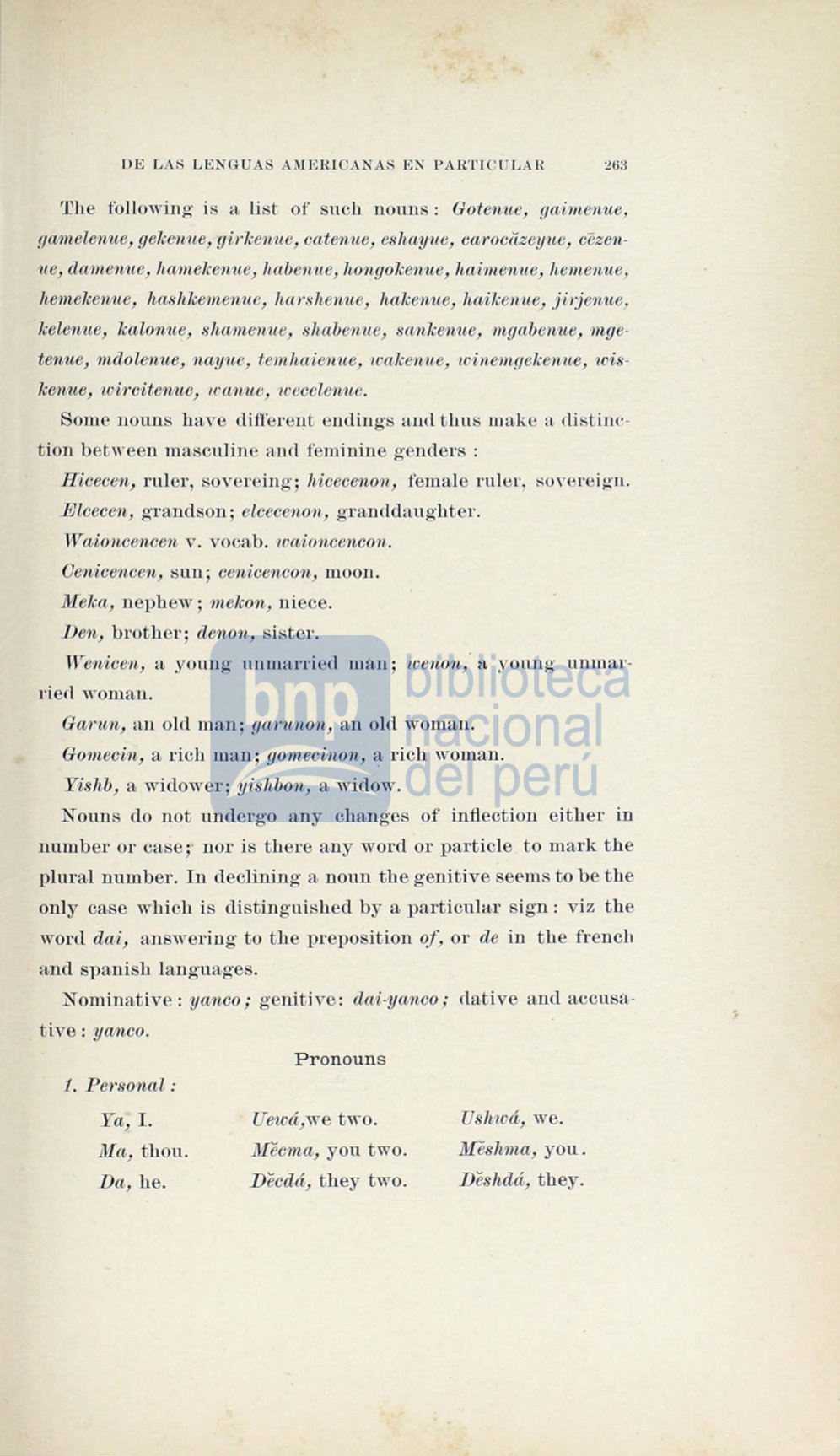

DE LAS l, ENGUAS
A ~rnRI CANAS
!<::"\
PAln' ICU f,A I<
~63
'J'he following is a list of such nouns :
Gotenite, ,qaimemw,
,qamelenite, gelce'mte, girkenite, ocitenite, esha,yite, oaroá ízeyite, cezen–
ite, dclllnenite, hamelceniw, habeniie, hongolceniie, haimenite, hemewu,e,
hemekeiwte, hashlcemenue, harshenue, hctkemie, hciikeime, jirjenite,
kelenue, lcctloniie, shmneniie, shabeni1e, scinkeniie, mgabeime, mge–
tenite, mdolemie, nctyite, ternhaiem te, wctlcenue, winein,qekeniie, wis–
keniw, wirc-itenite, 1caniw, iceceleniw.
Sorne nouns have different endings
~Lnd
tbus make a distine-
tion between masculine and feminine genders :
H-icecen,
ruler, sovereing ;
hicecenon,
female ruler, sovereig·1l.
Elcecen,
grandson;
elcecenon,
granddaughter.
lVa'ioncencen
v. vocab.
wa'ioncencon.
Oenicencen,
suu;
cenicenoon,
moon.
Melca,
nepbew;
melcon,
niece.
D en,
brother;
denon,
sister.
1•Venicen,
a young unmarried mán;
wenon,
a
young unmar-
ried woruan.
Gantn,
an old man;
ga1·iinon,
an old woman.
Gomeoin,
a ricb man;
gomecinon,
¡_t
rich woma.n.
Yishb,
a widower;
yishbon,
a widow.
Nouns do not undergo any changes of inflection either
in
number or case;· nor is there any word or particle to mark the
plural number.
In
cleclining a. noun tbe genitive seems to be the
only case which i
clistinguished by a particular sign : viz the
word
da,i,
a.nswering to the prepo ition
of,
or
de
in the frencl1
and spanisb languages.
Nomiuative :
yanco;
genit ive:
dai-ycinco;
flative aucl accus::i –
t ive :
yanwo.
1. Personal:
Ya,
l.
1lfct,
thou.
Dei,
he.
Pronouns
Uewá,w e
t"l\-o.
JJiecrna,
you two.
D 'écdá,
they two.
Ushwá,
we.
Meshma,
you.
D'éshdá,
tbey.
















